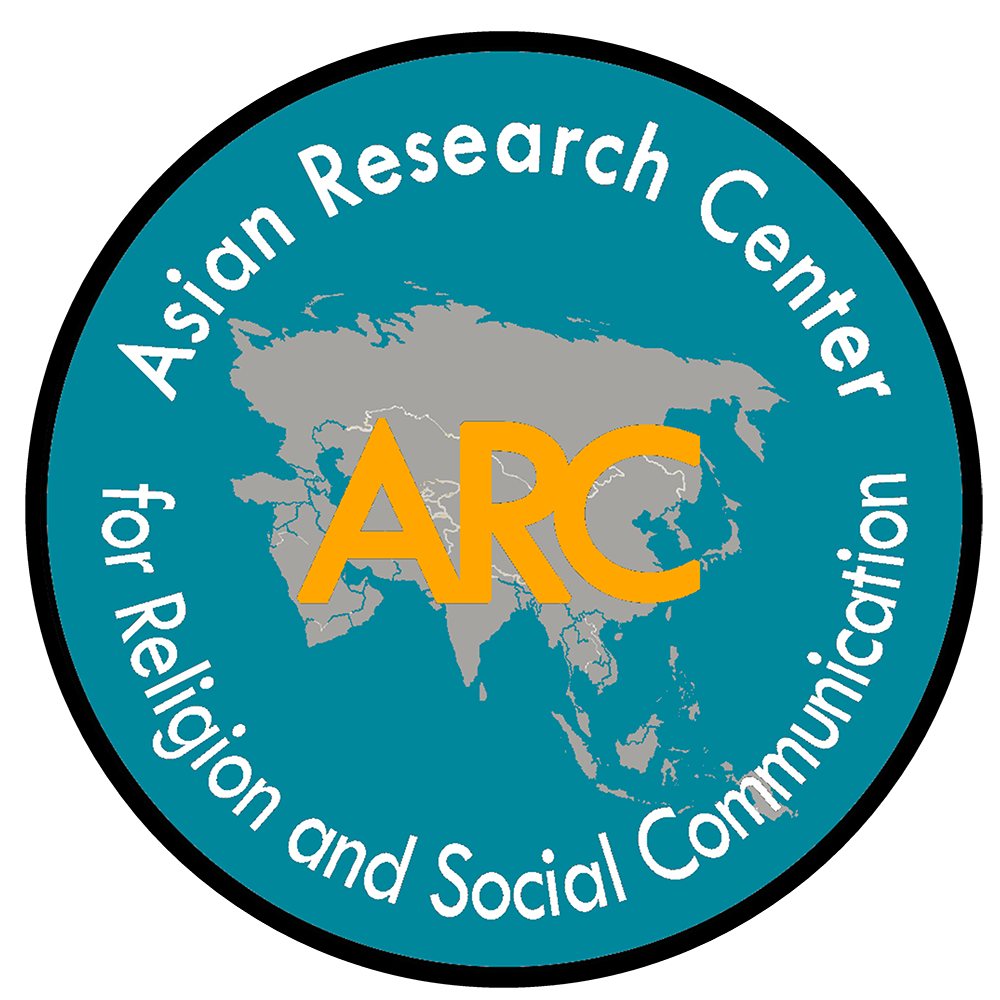Inter-Creationality among the Community of Beings: An Interreligious and Cosmological Perspective
Download
Anthony Le Duc
In Religion, Culture, and Ecological Flourishing in Asian Contexts. Edited by Anthony Le Duc. Bangkok: ARC, 2025
pp. 324–346
DOI: 10.62461/ASVD110125
This is an open access article under the CC BY license (https://creativecommons.org/licenses/by/4.0/).
References
Acharya Buddharakkhita. The Dhammapada: The Buddha’s Path of Wisdom. Kandy: Buddhist Publication Society, 1985.
Berthrong, John H., and Evelyn Nagai Berthrong. Confucianism: A Short Introduction. Oxford: Oneworld Publications, 2000.
Brasovan, Nicholas S. Neo-Confucian Ecological Humanism. Albany: SUNY Press, 2017.
Bucknell, Roderick S. Reconstructing Early Buddhism. Cambridge: Cambridge University Press, 2023.
Chilton, Bruce. “Jesus, the Golden Rule, and Its Application.” In The Golden Rule: The Ethics of Reciprocity in World Religions, edited by Jacob Neusner and Bruce Chilton, 76-87. London: Continuum, 2008.
Csikszentmihalyi, Mark A. “The Golden Rule in Confucianism.” In The Golden Rule: The Ethics of Reciprocity in World Religions, edited by Jacob Neusner and Bruce Chilton, 157-169. London: Continuum, 2008.
de Bary, William Theodore, Irene Bloom, and Joseph Adler. Sources of Chinese Tradition, Volume 1. New York: Columbia University Press, 1960.
Elijah Board of World Religious Leaders. “10 Spiritual Principles for Climate Repentance.” Accessed June 2025. https://climaterepentance.com/the-spiritual-principles/
Elijah Interfaith Institute. “The Elijah Board of World Religious Leaders.” Accessed June 2025. https://elijah-interfaith.org/about-elijah/the-elijah-board-of-world-religious-leaders.
Francis. Laudato Si’. 2015. https://www.vatican.va/content/francesco/en/encyclicals/documents/papa-francesco_20150524_enciclica-laudato-si.html.
Holder, John J. “A Suffering (but Not Irreparable) Nature: Environmental Ethics from the Perspective of Early Buddhism.” Contemporary Buddhism 8, no. 2 (2007): 113–130.
Humphreys, Christmas. Buddhism. Harmondsworth, England: Pelican Books, 1951.
James, Simon P. “Against Holism: Rethinking Buddhist Environmental Ethics.” Environmental Values 16, no. 4 (2007): 447–466.
Jiménez, Jacinta. “Compassion vs. Empathy: Understanding the Difference.” BetterUp, July 16, 2021. https://www.betterup.com/blog/compassion-vs-empathy
Johnson, Elizabeth. Ask the Beasts: Darwin and the God of Love. London: Bloomsbury, 2014.
Le Duc, Anthony. “Becoming Human, Intercultural, and Inter-creational: Movements toward Achieving Ecoflourishing.” In Ecoflourishing and Virtue: Christian Perspectives Across the Disciplines, edited by Steven Bouma-Prediger and Nathan Carson, 179–190. UK: Routledge, 2024.
Long, Jeffery D. Jainism: An Introduction. New York: I.B. Tauris, 2009.
Loy, David. The Great Awakening: A Buddhist Social Theory. Boston: Wisdom, 2003.
Malalasekera, G. P. “The Status of the Individual in Theravāda Buddhism.” Philosophy East and West 14, no. 2 (1964): 149–161.
Muir, John. My First Summer in the Sierra. New York: The Modern Library, 2003.
Payutto, Prayudh. A Constitution for Living: Buddhist Principles for a Fruitful and Harmonious Life. Bangkok: Buddhadhamma Foundation, 1998.
———. Buddhist Economics: A Middle Way for the Marketplace. Accessed June 2025. http://pioneer.netserv.chula.ac.th/~sprapant/Buddhism/buddhist_econ.html#
Wealth%20and%20Spiritual%20Development
PETA. “PETA Honors Gandhi’s Lifelong Commitment to Animal Liberation.” Accessed June 2025. https://www.peta.org/features/gandhi/
Pratchett, Terry. Small Gods. HarperCollins e-books, 1994.
Punnadhammo Mahāthero. The Buddhist Cosmos: A Comprehensive Survey of the Early Buddhist Worldview. Canada: Arrow River Forest Hermitage, 2018.
Sadowski, Ryszard F. “The Role of Catholicism in Shaping a Culture of Sustainable Consumption.” Religions 12 (2021): 598.
Sahni, Pragati. Environmental Ethics in Buddhism: A Virtues Approach. New York: Routledge, 2007.
Sangharakshita, trans. Dhammapada: The Way of Truth. UK: Windhorse Publications, 2000. Online version.
Schaeffer, Jame. Theological Foundations for Environmental Ethics: Reconstructing Patristic and Medieval Concepts. Washington D.C.: Georgetown University Press, 2009.
Schopenhauer, Arthur. The Basis of Morality. London: George Allen & Unwin Ltd, 1903.
Singer, Marcus G. “Golden Rule.” In Encyclopedia of Philosophy, 365–367. New York: Macmillan, 1967.
Swearer, Donald. “Buddhist Virtue, Voluntary Poverty, and Extensive Benevolence.” The Journal of Religious Ethics 26, no. 1 (1998): 71–103.
Syropoulos, Stylianos, Hanne M. Watkins, Azim F. Shariff, Sara D. Hodges, and Ezra M. Markowitz. “The Role of Gratitude in Motivating Intergenerational Environmental Stewardship.” Journal of Environmental Psychology 72 (2020): 101517.
Terwiel, Barend Jan. Monks and Magic: Revisiting a Classic Study of Religious Ceremonies in Thailand. 2nd ed. Copenhagen: NIAS Press, 2012.
Thera, Nyanaponika. “The Four Sublime States: Contemplations on Love, Compassion, Sympathetic Joy and Equanimity.” Access to Insight, 1994. https://www.accesstoinsight.org/lib/authors/nyanaponika/wheel006.html.
Tucker, Mary Evelyn. “Confucian Cosmology and Ecological Ethics.” In Living Earth Community: Multiple Ways of Being and Knowing, edited by Sam Mickey, Mary Evelyn Tucker, and John Grim, 111–126. Cambridge: Open Book Publishers, 2020.
Tucker, Mary Evelyn, and John Grim. “The Movement of Religion and Ecology: Emerging Field and a Dynamic Force.” In Routledge Handbook in Religion and Ecology, edited by Willis Jenkins, Mary Evelyn Tucker, and John Grim, 3–10. New York: Routledge, 2017.
Yao, Xinzhong. An Introduction to Confucianism. Cambridge: Cambridge University Press, 2000.
———. “An Eco-Ethical Interpretation of Confucian Tianren Heyi.” Frontiers of Philosophy in China 9 (2014): 571–592.



